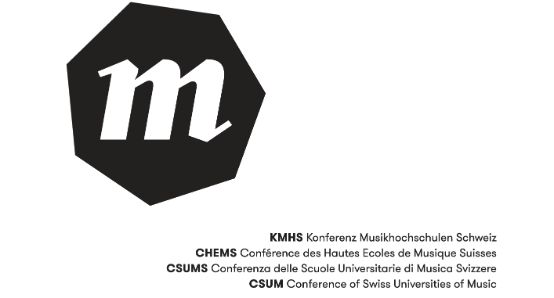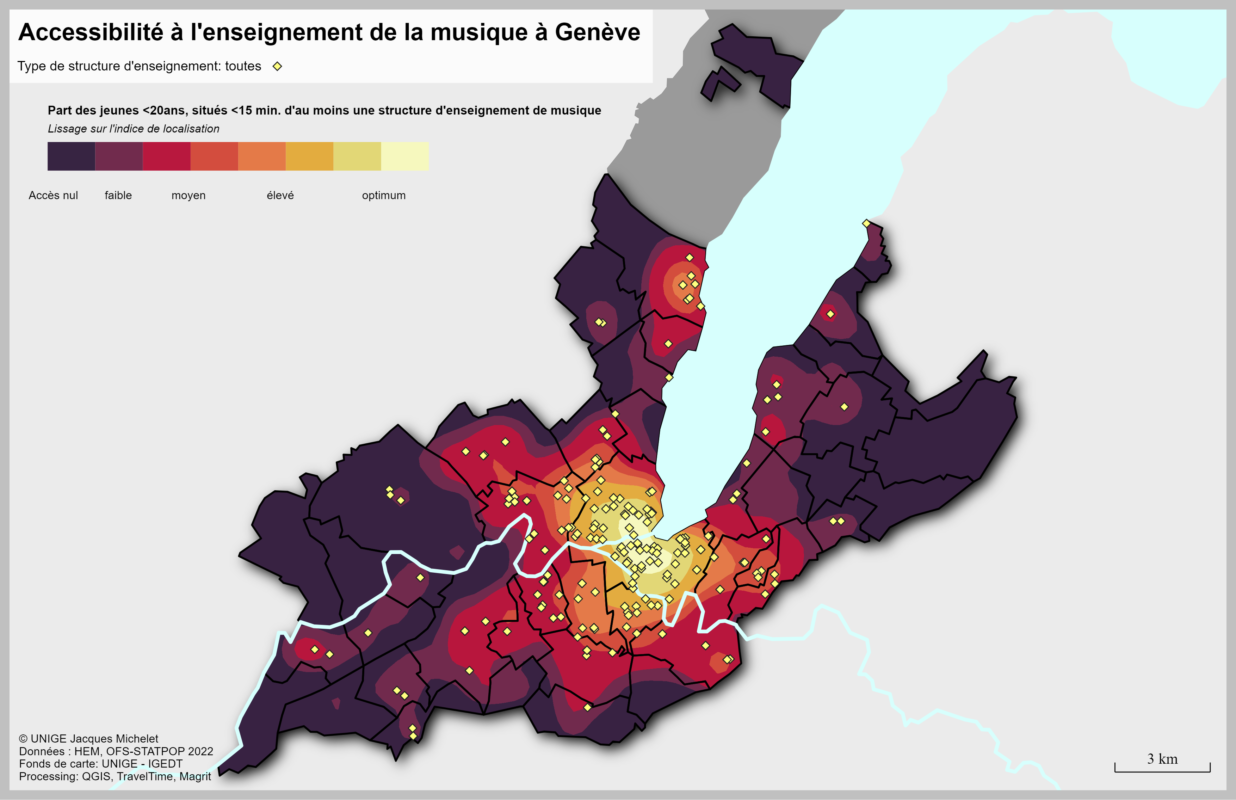The future of the Cité de la musique in Geneva - Béatrice Zawodnik appointed director

The vote on the Cité de la musique was narrowly defeated. Interview with Philippe Dinkel, current Director of the HEM Genève - Neuchâtel (HEM), and Béatrice Zawodnik, the newly appointed Director who will take up her post on January 1, 2022.
Antoine Gilliéron - Die Cité de la Musique wurde am 13. Juni in der Stadt Genf mit ein paar Hundert Stimmen abgelehnt. Das "Nein" gegen den Bebauungsplan des Quartiers, der den Bau erlaubt hätte, gewann mit 50,86 % der Stimmen. Die Wahlbeteiligung lag an diesem eidgenössischen Abstimmungssonntag bei 42,61 %.
Im Oktober 2020 befürwortete der Stadtrat von Genf den Bau der Cité de la Musique, aber eine Allianz aus Grünen, Ensemble à Gauche, SVP, Verfechtern des Kulturerbes und unabhängigen Künstlern hat genügend Unterschriften für ein Referendum gesammelt.
Das Projekt Cité de la Musique wurde 2014 ins Leben gerufen und wird vollständig (in Höhe von 300 Millionen Franken) von der Fondation Wilsdorf finanziert.
Im internationalen Architekturwettbewerb, der 2017 janciert wurde, hatte ein Projekt gewonnen - mehrfach überarbeitet, insbesondere um ökologischen Erfordernissen stärker Rechnung zu tragen -, das drei Konzertsäle (darunter eine Philharmonie mit 1580 Plätzen und eine Black Box für experimentelle Musik), Proberäume, eine Bibliothek und Restaurants in einem bewaldeten Park, der an den Place des Nations angrenzt, vereint. Dies auf einem Grundstück, das der UNO gehört.
Das gläserne Gebäude sollte das Orchestre de la Suisse Romande (OSR) und die HEM beherbergen, die ge-genwärtig auf mehrere Stand-orte mit veralteter Infrastruktur verteilt ist. Die Initianten des Referendums hoben in erster Linie die Fällung von Bäumen (obgleich dreifach ersetzt, wohingegen die ehrwürdigsten erhalten blieben), den Abriss eines (nicht klassifizierten) Herrenhauses sowie ein "gigantisches" und "elitäres" Projekt hervor, dessen Betriebskosten die Allgemeinheit treffen könnten. Das Projekt spaltete die Genfer Musikszene: Einige begeisterten sich für ein neues Kulturzentrum am rechten Seeufer, andere prangerten die Vorrangstellung der klassischen Musik zum Nachteil anderer, a priori populärerer Musik an.
Die Ablehnung vom 13. Juni ist nicht verbindlich, da der Kanton auf dem Gebiet der Raumplanung das letzte Wort hat. Angesichts des äusserst knappen Resultats könnte der Staatsrat sich über diesen Bebauungsplan des Quartiers, der den Bau der Cité de la Musique nun nicht zulässt, hinwegsetzen.
Philippe Dinkel, you've been director of the HEM for over twelve years, and have thus been at the heart of the Cité de la musique project: what did you think of the climate of the past political campaign, and what does it reveal about the link that unites different forms of musical expression, in Geneva and beyond?
The precarious position of independent artists during the pandemic probably played a destabilizing role, and I was struck - but not surprised - by the violence of the invective on social networks, which should alert us to the state of our democracy. I also think that the campaign has revealed the urgent need for a total overhaul of Geneva's public policies in the field of culture, which are currently devastated by ideological quarrels: the opposition between creative music and traditional music is absurd. This renewal must be based on serious rather than fanciful data, and on a real complementarity between the role of the communes and that of the canton.
What fundamental issues do you think this vote has highlighted for professional music education in Switzerland?
If I may refer to the situation in Geneva, it must be emphasized that implementation of the constitutional article on musical training cannot be limited to support for music awareness campaigns and associations, but must be accompanied by a genuine training policy that articulates the role of public schools, music schools and professional training embodied by higher education establishments. In particular, it must support young people's access to HEMs via pre-professional courses of study that are accredited and adequately funded, across all genres.
After this vote, what are the future prospects for the HEM's infrastructure?
I sometimes think that my school's reputation is nothing short of miraculous, given its facilities... It is, of course, due to the quality of its students and staff, and also to the national and international scope of its network. That said, provisional solutions, however imperfect and incomplete, will have to be found before the political authorities - it's their role, and indeed their duty - guarantee us framework conditions worthy of a university-level institution.
On a more personal note, how do you view your exceptional longevity as a director of music training institutions, and what achievements at the HEM are most symbolic for you?
My career plan was never to become director of an institution, let alone to stay there for such a long time... Let's just say that the chance of my generation has placed me at the center of a major double mutation - the entry of professional music teaching into specialized universities and the Bologna process - which I hope to have steered to a successful conclusion. As far as the HEM's offer is concerned, I've been lucky enough to be able to expand it both in time - from medieval music to contemporary creation in multiple forms - and in space, with the creation of a Master's degree in ethnomusicology in collaboration with the Universities of Geneva and Neuchâtel, which now places world music at the heart of our system.
You were one of the founding members of CHEMS: how do you view its past achievements and the role it can play today and in the future for higher music education in Switzerland?
CHEMS has evolved from a friendly club of directors into a body capable of playing a major role in our country's music policy. It has already done so in the past, notably in 2005, when it made clear to reluctant officials the demands of a professional music education compatible with the Bologna process. In my opinion, it must do so today, by relentlessly advocating the place of musical training in our country at all levels of education, the role that music can play in terms of creativity, innovation and social cohesion, the coherence and complementarity of the offerings of the various HEMs, the specificities of the organization of music teaching within the HES... After all, music was one of the first disciplines of the medieval university!
What message would you like to send to your successor at the helm of the HEM?
I hope he finds great joy in leading a wonderful institution, and that he doesn't get too bogged down in the complexities of the HES system - which has many advantages, by the way - so that he can focus on training the young artists our society needs more than ever.
Currently teaching coordinator at the school she is about to head up, Béatrice Zawodnik trained in Switzerland and Germany in music pedagogy, piano and oboe. She rounded off her managerial skills at the Institut des Hautes Études en Administration Publique with an award-winning Master's degree. Her career path is eminently rich and varied, ranging from teaching at various levels of the Swiss musical training system, to performing in a wide variety of orchestras and ensembles, both baroque and contemporary, and from coordinating the Geneva pre-professional program to organizing interdisciplinary artistic projects, including managing a CPMDT center and directing the Lausanne site of the HEMU.
Béatrice Zawodnik, congratulations on your appointment: what does it mean to you?
It's a great joy, representing the culmination of years of commitment to training, music and creation. It is also, of course, an immense responsibility to project the HEM towards the challenges of tomorrow, of which there are many.
Despite your fervent commitment to the campaign, is the setback at the ballot box perhaps likely to hinder your future work as Director of the EMH?
The result of the vote is a huge disappointment for the magnificent architectural and cultural project we've been working on for eight years. Obviously, we need to digest this result and bounce back quickly, as the HEM is in urgent need of suitable premises. The campaign for the Cité de la Musique will have raised awareness of this reality, which is a positive point to note.
What idea(s) would you like to put forward to find a way out of this vote?








